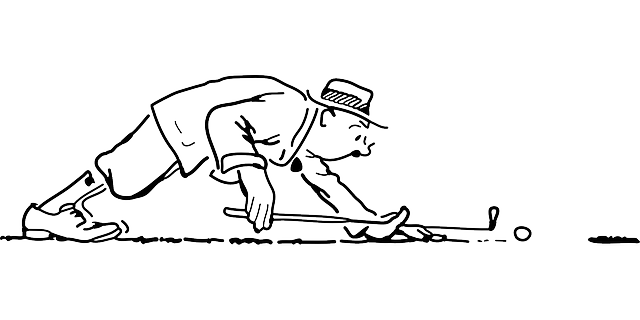
Photo by Andrea Piacquadio from Pexels
OK, I’m betting they may not be on paper, but you plan to:
- Lose weight
- Eat better
- Exercise more
- Watch less TV
- Spend more time with family
- Read more
- Go to church regularly
- Get more sleep
- Take up a hobby
- Quit smoking
- Volunteer more
- Drop Facebook
In other words, become a New You for the New Year.
I know you are exceptional – you’ll make all of that happen. All in the same year and a New You comes out the other end toasting another new year on 12/31/22 and the start of a new list the next day.
We can only hope!
For most people, 13 of those 12 won’t happen.
Just imagine if we were all able to keep that sort of annual momentum year-upon-year-upon-year.
We could own the universe with all that compounding.
But then, who would want to own today’s universe?
I’ll pass.
I don’t remember when, or if, I’ve ever set New Year’s Resolutions. Certainly don’t remember ever putting them to paper. Maybe if I had I would be more of something. I don’t suppose it’s too late but as I prepare to start my 9th decade on this mudball, somehow it seems a little superfluous.
It fits better for me to do the three most important things I can think of today. String enough of those all together and the year should turn out OK.
Why don’t they work?
Setting goals is generally a good idea and is the rationale behind New Year’s Resolutions – except they also generally don’t pan out. It’s kind of a running joke that these resolutions are an exercise in futility. They usually run out of steam about April.
The classic seems to be the exercise resolution. (C’mon – you’ve been there!)
Need proof? For a few decades, I frequented an upscale athletic club daily for basketball and weight-lifting. But I always worked out at home for the first few weeks of each year because it got so overrun with well-intentioned, deer-in-the-headlights new patrons set on a “new me” in the coming year.

By the first or second week of February, the decks were pretty well cleared and things were close to normal again – certainly full-on normal by March 1.
The “January Bloom” is the only way an athletic club can make it. They convince people their membership will be “fun” and get their $39.95 on monthly recurring concealing the fact that exercise – especially as a newbie – is anything but fun and knowing that the combination of pain, inconvenience, and lack of immediate results will soon keep people at home. But still paying their monthly.
Who’s gonna admit they flunked exercise?
I don’t mean to throw water on the entire goal-setting process just because New Year’s Resolutions don’t work.
But maybe, just maybe, there’s something that works better than goal-setting – and eliminates the frustration of unachieved New Year’s Resolutions.
I’m trading goals in for “themes” that are on the path to mastery.
Niklas Göke is a writer on Quora and Medium.com who offers a different twist on goal setting perhaps worthy of consideration:
“-goals were never the reason you didn’t “make it” this year. Goals don’t help you create long-term happiness, let alone sustain it. They never have, and they never will.
From a rational perspective, goals seem like a good way of getting what you want. They’re tangible, trackable, and time-bound. They give you a point to move toward and a nudge to help you get there.
Until we reach them, all goals do is exert pressure from afar. Even worse, when we finally do achieve them, they disappear.
But on a day-to-day basis, goals often lead to anxiety, worry, and regret rather than fulfillment, pride, and contentment. Until we reach them, goals exert pressure from afar. Even worse, when we finally do achieve them, they disappear right away — like a baseball in a home run, zipping out of sight. The burst of relief is fleeting, and we think it must be happiness. So we set a new, bigger goal. Once again, it seems out of reach.”
Goke and James Altucher, bestselling author, entrepreneur, angel investor, and former hedge fund manager, advocate for themes instead of goals.
Altucher suggests creating a theme of how you want to live your life and then do the next thing that is important to you.
A theme might be a single word — a verb, a noun, or an adjective. “Commit,” “growth,” and “healthy” are all valid themes. So are “invest,” “help,” “kindness,” and “gratitude.”
A goal asks “what do I want?” but a theme asks “who am I?”
Altucher’s position is that our overall life satisfaction isn’t determined by singular events but rather by the average of how we feel at the end of each day. According to him, when you have themes, “you build unbelievable intuition on what is the next thing you should be doing in your life. You’re no longer trapped by a long list of tiny inconsequential things you feel you have to do.”
So, I’m continuing to simplify it for 2022 by envisioning myself on a path to mastery of what I’ve chosen and love to do using today to advance that in some way, fully aware that true mastery is always out of reach.
It’s the goalless journey that matters.
I’ve stolen and adopted this theme from Dr. Ken Dychtwald, psychologist and founder of AgeWave:
Breathe – Learn – Teach – Repeat
It fits who I am. If I stay true to that, on December 31, 2022, I will be smarter, healthier, and maybe will have touched somebody. And I will not be bound up or worried about having missed a goal or having to set another one.
A theme or goalless journey is immune to anxiety and fear of failure.
Here’s a meaningful quote from Niklas Goke:
“A goal splits your actions into good and bad. A theme makes every action part of a masterpiece.”
Here’s to you and I making 2022 a masterpiece – of our choosing – one day at a time.
How do you feel about this argument? Are you a committed goal setter – or do you have themes working for you? We’d love to have your feedback on the topic. Leave a comment or drop an email to gary@makeagingwork.com


























